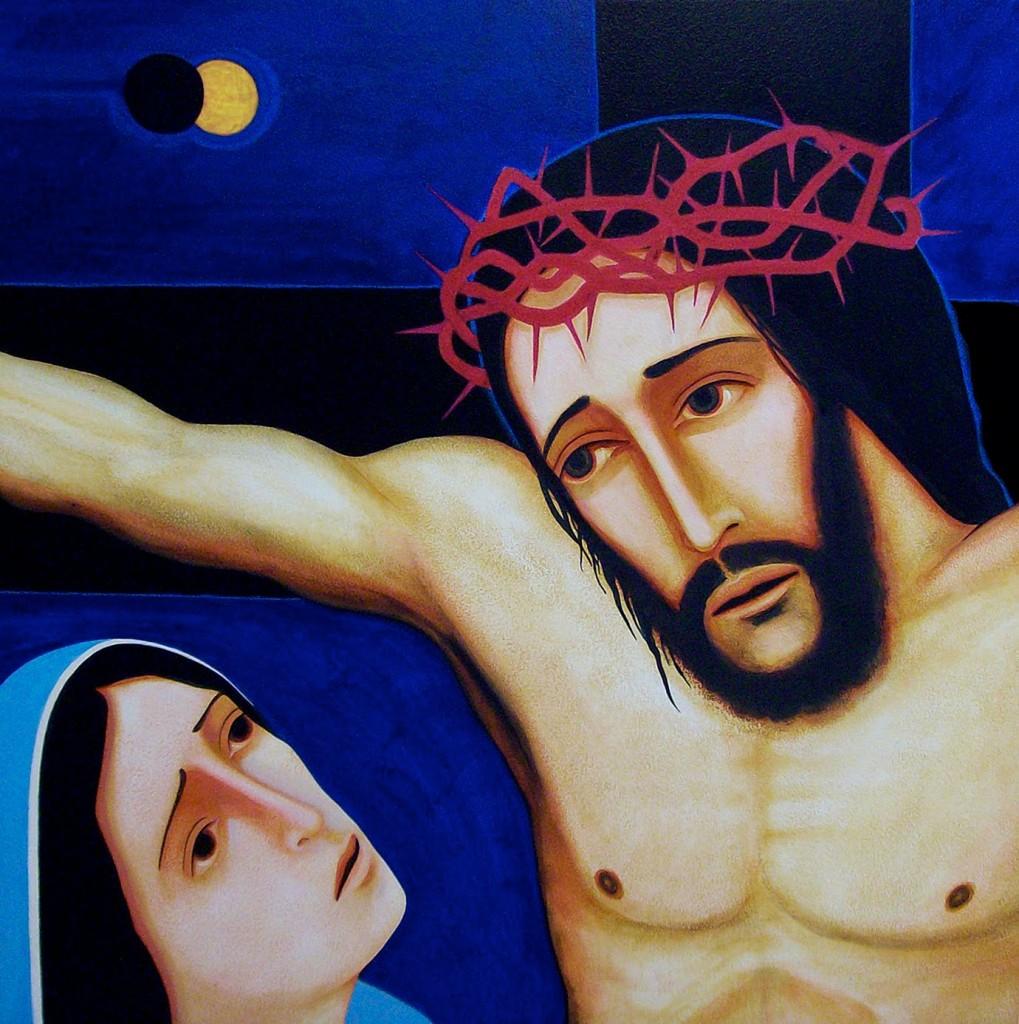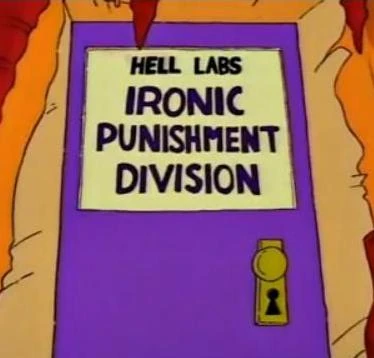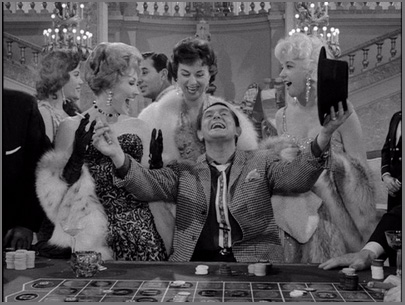When I was a teenager I was quite adept at figuring out ways to make myself terribly unhappy. Perhaps this bizarre quest for unhappiness can best be summed up in a little story that involves me and a magical snow globe, a little glass sphere wherein a snow man lived, complete with black hat- balloon in hand- and a world that apparently never wanted for snow… as long as it was properly shaken. I always associated this little snow globe with the magic of Christmas (in large part because that's when my mother usually put it on display).
At any rate, I loved that snow globe, but for some reason, I chose to treat it as if it were expendable, or rather like any other ball that existed for sport. So there I was one day tossing it up in the air, and catching it as it came down. In most ball games there is an actual point system- however, there was none in this particular "game". In fact, there was no real object to this game whatsoever, unless you consider "dancing with the devil" an objective. Lo and behold, after playing this game of "snow globe roulette" for a while, I dropped the magic orb, shattering it into a million pieces all over the tile floor. There it lay, that glorious liquid world dead on the floor, that adorable little balloon, limp, never to rise again.
Why do I begin Christmas with such a tragic allegory? Because there is something about Christmas that seems married to tragedy, not because Christmas is necessarily tragic, but because we are. And it is precisely for this reason that Christmas, or rather Christ, came to us in the flesh. The following movies/TV classics seem instinctively to grasp this concept. Subsequently, in this post I will seek to highlight the particular insights that I have gleaned from watching each of these classics, primarily as a means to assist the reader (as well as myself) in the ways of happiness. My selection stems from the fact that the following pictures/stories bring joy to the heart. The only real question is why? My contention is this: they bring us joy, because in some mysterious way they possess the secret to finding it.
1. It's a Wonderful Life - Gratitude for Life (and all of creation)

One of the primary obstacles to human happiness is a progressive blindness that sets in- primarily due to a loss of gratitude for the good things that surround us every day. Whether this is because of sin, world-weariness, or some combination of both, this creeping sense of ingratitude is always threatening to gnaw away at our basic appreciation for our lives. However, what a movie like "It's a Wonderful Life" offers is a lesson in how to avoid this kind of existential blindness. The lead character, George Bailey, who is on the brink of suicide, is given a vision of what life would be like had he never been born. In this vision he gets a taste of nothingness, a nothingness that is apparently worse than even death itself. In fact, it is so terrible that when he returns to reality, he falls in love with everything in the world, even the most mundane of things. By experiencing, in some mystical sense, a void of nothingness, he now possesses a boundless gratitude, not only for things that are patently good, but even for things that would otherwise not be highly regarded at all (i.e. he celebrates the possibility of going to jail). By being plunged into darkness, he realizes that existence, even its imperfection, are a grace compared to the alternative. By having everything in the world taken away from him, he can now begin to delight in everything in the world again- as if it were the first day of creation, and God were giving him the world anew.
Consequently, after this miraculous encounter, everything now seems magical and animated to George. He is thankful for large wooden rustic signs, he is thankful for his town, he is thankful for street lamps, for the blood running down his face, for his drafty old house. Indeed, he even kisses the broken knob on the railing going up the stairs because of his love for everything that is. Why? Because it might not have been at all! Thus, we should all keep a little bit of George Bailey about us wherever we go, striving to practice praise in this way, not seeing creation as one giant amalgam of things, but truly seeing it, observing and naming the particular as he goes, offering a litany of praise (as it were) for even the most mundane of things. Is this not, after all, what Christmas is about? A magnificent mystery, one that inevitably involves a man pulling from his giant cosmic satchel; the moon, the stars, the planets, and for that matter, everything else in God's good creation.
2. A Christmas Carol - "Memento Mori" and Redemption

After watching a movie like "A Christmas Carol" (or, of all things, reading the book), we all feel a bit like we have caught a glimpse of how good things could be if we lived the way we know we ought to… and then that glimpse/spiritual high seems to disappear as quickly as it came. However, the point of stories like this is not simply to suggest that our lives will change after watching an uplifting movie, or that if we only think happy thoughts things will approve, but rather that if we put into practice some of the imaginative insights offered in stories like these, we might start to see similar changes. The imaginative practice to be exercised in this particular case is quite sobering, for it involves the act of "remembering your death" (i.e. memento mori) in order to find life more abundantly; "Old Marley was dead as a door nail. This must be distinctly understood, or nothing wonderful can come of the story I am going to relate."
So why is there any good in this practice of "remembering that we die"? There is none... unless our death can be understand in the context of the larger story of our Redemption. The joy of Scrooge really does come with a side of death. Having a taste of mortality, losing everything, feeling like your down in a hole with no way out, experiencing a profound sense of helplessness/hopelessness... and then being miraculously (or at least providentially) yanked back to safety, now that is something capable of changing the heart. It is difficult to say exactly what transpires in the soul of a man when he experiences something like this, but suffice it to say it must involve the combination of two sentiments which are polar opposites. It must be like the man who goes from "dead man walking", to the man who inexplicably "walks" as a result of a last minute pardon, or a man who shuts his eyes in total fear, waiting for the final nail to be struck in his coffin, only to open his eyes and discover that he is at the center of a ticker tape parade, a celebration inexplicably held in his honor.
Yet even that does not quite suffice to explain this monstrous magnanimity on the part of the one who pardons. After all, this act of charity cannot begin to mean anything at all until/unless the one who "walks" is fully aware that he deserves death and even worse.What return can one make for this gift? How does one respond in the face of such generosity? Make your neighbor the object of your gratitude. You have received without cost, now you must give with a similar extravagance. In this new order, time is transfigured. It was once a symbol of death, and is now a joyful currency. Instead of treating people like objects, and objects as people, we now reverse the order, using our time and resources to heap happiness on others in gratitude for a second chance. Today is the first day. This is the meaning of redemption.
Incidentally, the Church also encourages us to walk in the way of Scrooge. One can indeed practice this spirit year round. For confession is always geared towards having the penitent visit the "three ghosts" in order to keep things in their proper perspective. Lent in particular demands an attitude of penance, not for its own sake, but so that we too (along with Scrooge), can burst forth from that terrible tomb of death, resilient and ready to live like "we were dying".
3. A Charlie Brown Christmas - The Triumph of "Tininess"

One of the beautiful secrets of Christmas joy is the celebration of little things, tiny things; things which might otherwise be regarded as negligible, weak, and forgotten. In this season, those "afterthoughts" take on a new shine in light of the Incarnation. How exactly did this come to be? When the All-Powerful, All Knowing, Inscrutable God became "tiny", dependent, and vulnerable, everything in creation, including the least of creation (especially the least), became lovable. Before this, no one needed God to tell them that the powerful ruled the world. This was patently observable. What they needed was to see power and beauty in weakness, a "weakness" that would ultimately conquer the world. Thus, what we tend to remember most about this feast are not generally the giant presents, or the amount of money we spent, but rather what is, by worldly standards, incidental and negligible (e.g. how does a manger and a shepherd go from being "mangey", to being romantic) God is truly Midas in the best possible sense. On this day, and during this season, those things which are otherwise of secondary importance take center stage. For example, when I think of Christmas, I think of the tiny ornaments (I am still looking for a lost ornament from my childhood; it was a little boy in a hot air balloon- inside the craft there was a tiny Christmas tree, with a bell on the bottom of it… if you see it, please let me know), traditions, funny hats, clothes, carols, food and drink, children that can't sleep, hot chocolate, trees, candles, and lights that cover just about everything. Enter "A Charlie Brown Christmas", wherein a tiny, vulnerable, forgettable little tree becomes a lead player. That tree still burns brightly in my mind all these years later. Everything else from that episode seems rather hazy to me, but not that tree! Perhaps that is why the show "interrupts" itself (and almost got censored for it), to read the Christmas narrative and remind everyone why our hearts are so moved by little things at this time of year. Because God became tiny, weak and vulnerable, we can now see his light shine in all three.
 |
| "I never thought it was such a bad tree really… Maybe it just needs a little love" |
4. Elf - Maintaining a Spirit of Wonder and Awe
What Buddy represents is not only wonder and awe for certain mysteries that lie beyond us, but for the mysteries that surround us every day. He sees the world as we used to see it before our own cynicism wore us down. He sees it with the wonder and awe of a child. Like Buddy, we too have been mysteriously plunked (as if by a divine stork), right into the middle of existence, and we should never cease to be in awe of this fact. Yet just as important- is what Buddy teaches us about belief. We obviously shouldn't believe everything that we are taught, but as strange as our existence turns out to be, shouldn't we at least leave open the possibility of miracles? Buddy responds with a resounding "yes"!
5. Little Drummer Boy (David Bowie and Bing Crosby) - Peace on Earth… or at Least a Little More of It

When this Christmas classic was created it must have seemed as bizarre as any collaboration could be. Then again, from the perspective of the apostles (and those who knew them), the calling of the twelve might have struck many in the same way. "So you are going to put a Roman collaborator (i.e. a tax collector) with anti-Roman nationalist (viz. Simon the Zealot)? While we're at it, why don't we get an ISIS fighter to team up with a journalist from Charlie Hebdo, or a Black Panther with a member of the KKK? Yet this is the remarkable program of the Christian revolution- the notion that there are some virtues higher, and even more essential, than our own individual pursuits and passions. Christ came not to establish a competitive religion, but more importantly, a way of life wherein, even while we might disagree on lesser things, on the essentials we are to be united. Consequently, Christmas offers- in so many ways- a greater opportunity for peace and solidarity. More than any other religious or secular festival, the Incarnation preaches in the most humble, beautiful way, a Gospel of human rights, a gospel of dignity, a Gospel of love and gratitude. How can any man now set himself above another, especially after God Himself has lowered himself to serve all of mankind? The highest has made himself the lowest, and the greatest, the least! This is why Bowie and Bing (or anyone else of "good will" for that matter) could come together and literally sing from the same theological song sheet.
6. The Snowman - The Mystery and Magic Behind It All

Whether you believe in Jesus Christ or not, who can deny the magic of this season? Who can explain the number of carols, traditions, art renderings, movies, memories, all of the child-like exuberance surrounding this season? There is nothing like it. Thus, whatever one's persuasions, one is left with two equally improbable possibilities. Either this season is a series of absurd accidents, or God really did take flesh and become a homeless man. Whichever it is, who can adequately account for the manner in which this season is capable of moving our hearts? I can still remember being rather agnostic in my youth (especially about Jesus), and going to church and singing the carols, and saying to myself; "What is it in the air? What is this irrepressible feeling of joy in my heart?" Whatever that joy is/was, it certainly did not appear at that moment because I was a devout Christian. I most certainly was not. The larger point is this: whatever it is about this season that seems so capable of inspiring tears, laughter, and chills, it cannot simply be reduced to the function hanging up a bunch of lights around the house, or as in this case, building a snowman- and then subsequently shoving a carrot into its snow-head.
The snowman flies in our imagination, not because he can fly in real life, but because when snow flies, we feel as if we were floating with it on the air. Perhaps this is why snow gets attached to Christmas, even when one lives in a place like South Carolina, a place where there is so little of it this time of year. It looks and feels a little like manna floating from the heavens, as if the ordinary laws of nature were being suspended for a short period of time. Creation is covered in pure white, almost inviting us to conceive of a new world. Still, whatever causes our hearts to leap and dance with joy during this season (like John in the womb of Elizabeth), it should be recognized that it goes well beyond any human capacity to comprehend it. It is not the accoutrements of the season that ultimately make Christmas what it is, nor is it even all of the lovely trinkets that adorn this time of year. These special decorations are rather the vestments that help adorn the larger Mystery. Yet they are not the Mystery Himself... I am pointing all of this out because if the Source of the initial enthusiasm is ultimately lost or rejected, then how can one ultimately remain enthusiastic about the celebration itself? Go ahead, try your best to party in the name of the Solstice, and sooner or later you will find your spirits melting away about as quickly as a snowman in the midday sun.
7. Frosty the Snowman - The Transience of Life
Speaking of snowmen melting… One of the most painful aspects about a snow storm (leaving aside all of the practical inconveniences that make some dislike snow) is when the snow itself begins to stop and/or melt, or even worse, when the snow changes back into rain (thank you Dan Fogelberg). While Christmas, and all of the festivities that ultimately surround it are joyful, this time of year can leave you blue (i.e. like watching snowmen get built, and then subsequently watching them melt). During the holiday season, many of cares and concerns of life are suspended, as if you it were foretaste of heaven, but then, like waking abruptly from a pleasant dream, you are right back in your body again feeling the same old pain as before. The danger of this kind of festivity in life is that we can wind up clinging to the good times, and then being drawn to despair when the difficulties of life return.
Frosty the Snowman (as well as snowmen in general), are a good reminder that our lives (even the greatest pleasures) are a passing thing. So how might we turn this melted snowman into something a little more helpful, as opposed to dwelling so much on the negative? There is only one way to avoid despair in these matters. Only in light of the Incarnation, and ultimately the Resurrection, can we find true satisfaction and meaning in these moments. By putting our ultimate hope in the aforementioned mysteries, we avoid treating that the "vacation" as if it were everything, and instead treat it as a foretaste of something greater. If a melting snowman is basically an allegory for the hopes and dreams of life, then what a terrible story to tell everyone. Thanks Frosty! I knew winter was about death, but I thought there was hope when I found you… Wrong! Thus, the joy and celebration that is found around Christmastime is a sign that points beyond itself, and thus should not mistaken for a party that never ends (that's called a hangover), or a snowman that never melts.
8. The Night of the Meek (The Twilight Zone) - The Vocation of the Happy Man

There is nothing so sad as a man who either won't work, or one who would work but cannot find steady employment. This particular Twilight Zone depicts a department store Santa who is otherwise unemployed. Obviously the part-time position he holds is the farthest from a long term position, so in his depression he spends all his money on booze. Unfortunately he arrives to work one day during the holiday season thoroughly intoxicated. As a consequence, his employer fires him on the spot. Embarrassed by his own behavior, the Santa apologizes, but also explains why he is driven to drink. He explains that if he didn't drink, he would constantly weep for a world that's so sad and unfulfilled, and for himself because he feels powerless to do anything about it. Just once, he declares, I wish that the meek would inherit the earth! Soon after making this request, he's starts walking in the snow, and all of a sudden he hears sleigh bells. He looks down and sees a giant satchel. This is no ordinary bag, for he soon discovers that it is filled with gifts. In fact, apparently the bag can produce whatever gift a person requests. The episode ends, not only with him sharing his new found abundance with everyone he meets, but also with him rejoicing in his new found vocation, for he apparently has a sleigh awaiting him, and elves at the ready to help him carry out his universal call to generosity and service. As maudlin as this may sound to some, not only is the writing exceptional in this episode, but so also its larger point. Man is made to be a sacrifice, and the more he is able to accomplish this the happier he is. There is something incredibly fundamental about Santa Claus. He is a charitable and a generous man, who never waits around to be thanked for his good deeds (though you may catch him occasionally in the act), and his entire life is dedicated to this work of giving of himself in honor of this most Holy Feast of Christmas. This sounds to me like the vocation of every man.
9. Family Man - The Secret Joy of Messiness and Imperfection

10. A Christmas Story - Christmas and the Family

11. Rudolph the Red Nosed Reindeer - Strength in Weakness
The idea that there is a secret treasure at the heart of our weaknesses and vulnerabilities should not be demised as a mere cliche or a platitude. Far from it! They, beyond any other aspect of ourselves, demand the most imagination in order to find something redeemable about them. We take for granted that a symbol of torture should "obviously" represent our salvation. However, this is a prime example of how repetition and mindless acceptance can turn wisdom into banality. Finding meaning in our weakness, or in our suffering, is perhaps the most important project we will ever undertake. Indeed, to persevere long enough to find out how God is going to turn our weakness into a strength is perhaps the greatest challenge to our natural sense of faith and hope. Yet as challenging as this might be, consider what wisdom, knowledge, and power you would have without that beautiful struggle, what authority and insight you would accrue without discovering how the sour lemons of life can be turned into a refreshing beverage, and not only that, but perhaps even the defining mark of our vocation. These things which set us apart are often a tremendous burden in our youth, especially during a time when general conformity is most preferred. However, what often seems to separate us most, is ironically the thing which can truly separate us in the positive sense. Rudolph of course is the poster child for this, and I suppose many today would gladly use him as a model for the evils of bullying. Yet to some extent there is no avoiding the feelings of exclusion in this life, or the fear of being different. The point of "Rudolph" is not merely that bullying is bad, or that we should include everyone in our "reindeer games", but rather that distinguishing yourself can be vital, not only to yourself, but for everyone involved. In fact, sometimes the things which appears to be most detrimental turns out to be most redeeming. The wisdom of this little story and stories like it is to recognize that not every strength is a strength, and that not every weakness is a weakness. And of course the Incarnation is the ultimate example of this paradox, for not only does it suggest that weakness and vulnerability can be a strength, but that in the divine order of things, they might even be the ultimate strength.
12. The Grinch - Charity in Magnanimity
Everyone who understands anything about Christmas appreciates the spirit of charity that goes along with it. However, this idea of "charity" is often understood in too narrow a sense (i.e. the only kind of charity is to be found in soup kitchens). Not that generosity to the poor isn't essential, but what is missing from this equation is an appreciation for the poverty of certain souls that are trapped in a cycle of bitterness, anger, and frustration. These are the poor ones out there that know nothing of the joy of Christmas, either because of their own sins, or perhaps because of the sins of others. What the story of "The Grinch" is all about is the kind of charity that actually has a chance to bring true peace to the world. Feeding the poor is not charity, it is justice (to quote Chesterton); forgiving people that have hurt you or slighted you, now that is magnanimity. It is the kind of largeness of spirit that is too joyful to begrudge. This is the only way to conquer evil, or rather the only way to conquer it in people that may have gone off the rails somehow, people who have forgotten what forgiveness and mercy look like. In any case, there is no chance to bring someone back from perdition if no one offers him a way back. Indeed, if no one is generous enough to offer the Grinch a second chance (whether he takes it or not), none of us will ever experience anything but a world of unforgiving Grinches, with us at the center of the narrative.














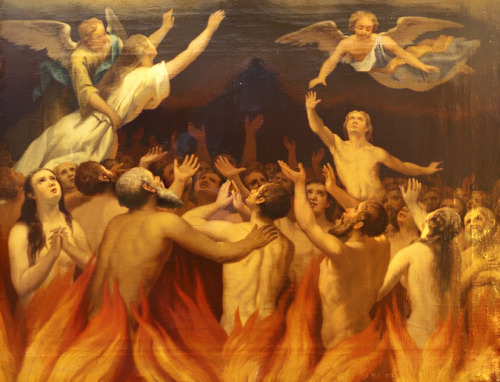

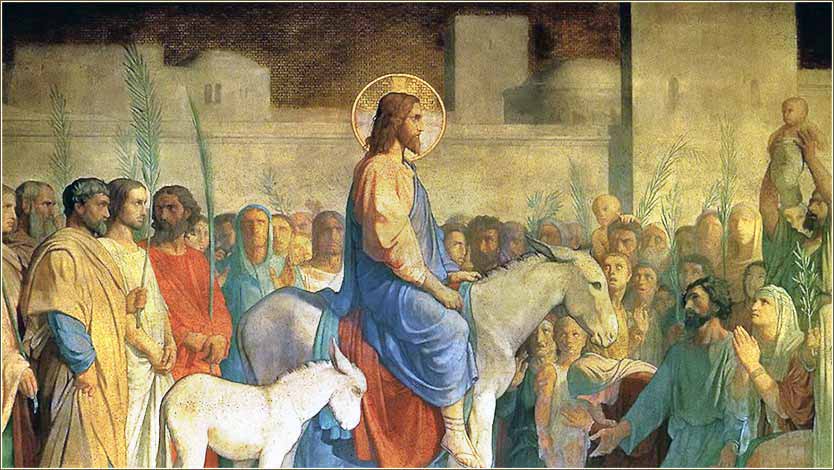





_edited.jpg)



